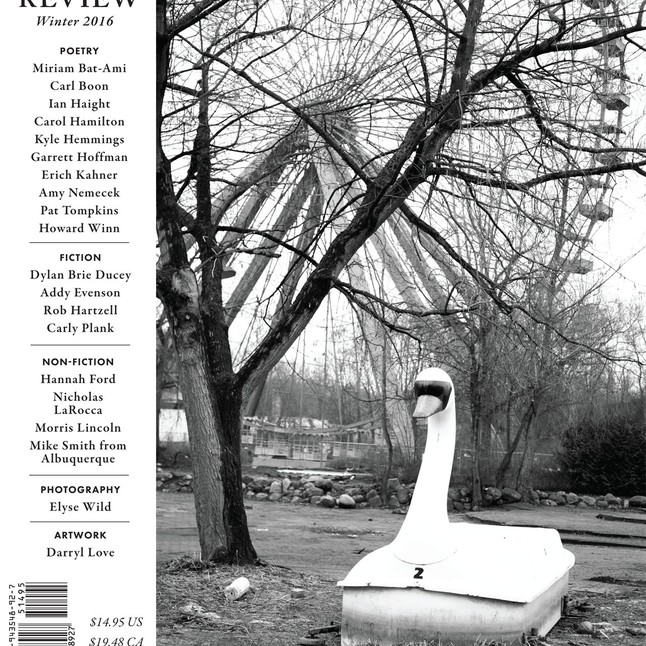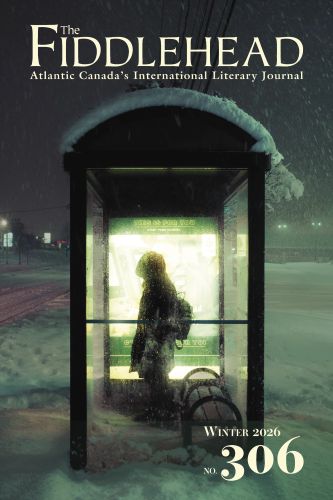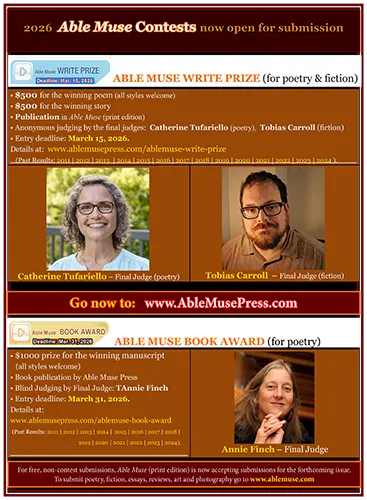“Authors, take note,” suggests John Gillikin. “Write. Submit. Rinse. Repeat. Hone your craft [and do] not be ashamed of a rejection letter.” This piece of advice appears in a long editorial “From the Corner Office” at the end of the Winter 2016 edition of The 3288 Review, a lit magazine still in its infancy and boldly asserting its preference for works written by West Michigan authors. As a Michigan native myself (though not West Michigan), I was prepared to trudge through yet another literary forest of deer hunting tales, great blue herons reigning over marshlands, lake lore, fish lore, winter lore, how a tree is a metaphor for everything and the spirituality of an autumn leaf, or the typical boy-meets-woods-meets-boy-meets-a new version of himself on the journey and now he has written something equal to Thoreau’s Walden.
“Authors, take note,” suggests John Gillikin. “Write. Submit. Rinse. Repeat. Hone your craft [and do] not be ashamed of a rejection letter.” This piece of advice appears in a long editorial “From the Corner Office” at the end of the Winter 2016 edition of The 3288 Review, a lit magazine still in its infancy and boldly asserting its preference for works written by West Michigan authors. As a Michigan native myself (though not West Michigan), I was prepared to trudge through yet another literary forest of deer hunting tales, great blue herons reigning over marshlands, lake lore, fish lore, winter lore, how a tree is a metaphor for everything and the spirituality of an autumn leaf, or the typical boy-meets-woods-meets-boy-meets-a new version of himself on the journey and now he has written something equal to Thoreau’s Walden.
Well, there are certainly splashes of nature and wilderness in these pages, but I am happy to say that they transcend the typical portrayals of northern-ness. Congrats to my Michigan colleagues, and the handful of the authors in this handsomely crafted edition not from the Great Lakes state. Altogether, I proudly attest to the quality and artistry of, not only the magazine itself, but also the individual authors therein, from Michigan or otherwise. And despite everything I’ve said so far about its lack of over-the-top-woodsy-ness, my favorite piece in 3288 is a semi-wilderness tale.
“I lived in the woods, and then left to go traveling,” begins “The World Greening Wildly,” a creative nonfiction piece by Mike Smith of Albuquerque. In fact, when I observed this author’s penname on the front cover, which includes the “of Albuquerque,” I knew I was likely in for a treat. Smith’s prose is terse and lyrical, his narrative of the Alaskan wilderness, drug addiction, paranoia, hitchhiking, concrete slabs, “sleep. . . . ramen noodles. . . . and sex,”—along with some remnants of Mormonism and Jehovah’s Witness thrown in for “disfellowshipp(ing)” purposes—unfolds in layers across fourteen of the magazine’s pages, and kept my attention through the entire read.
And if I hadn’t gotten enough of “sex” or the f-word in Smith’s piece, I only had to flip a few more pages to Addy Evenson’s short story “Maquillage.” At first, this snarky tale about three Midwest hookers was a bit hard to stomach but grew on me in leaps and bounds as I continued to read—but that’s more an issue of subject matter than prose. Because, in truth, Evenson delivers a strong narrative punch right out of the starting gate:
Nostalgia is old hat,” Carol says. Carol tears down the yellow leaflets, pinup girls, and wallpaper garden. For a while everything is bare. A month goes by and it is Christmas. Carol only hangs up the pinup girls. Then she hangs up the wallpaper garden. The leaflets have been burned.
Evenson, I want to see more of your stuff in print.
And I could go on praising Rob Hartzell’s “Leaving Babylong,” Nick LaRocca’s “The Placenta Test,” and Carly Planks “Voir Dire,” other fiction pieces in this edition, but especially Morris Lincoln’s essay on what it means to be a pansexual in a largely Evangelical Christian Grand Rapids, MI, titled “Seared in the Pan: A Morality Play in Five Acts with Intermission.” In fact, what I love most about this lit mag is its ability to balance a celebration of landscape and wilderness with some of today’s most of-the-moment topics.
The prose and poetry collected in these pages accomplish a beautiful tension between light and dark, rigid and sensuous, terse and lyrical in way that, I believe is difficult to arrange so that the reader feels a sense of agony or introspection then a moment of relief and exhilaration. For instance, right after stepping out of Lincoln’s essay demanding me to question my assumptions about sexuality in various ways, I get to spread my toes in Garrett Hoffman’s “Moist Earth,” a poem that seems to be an elegy for a sibling, woven with delicate memories of “merlot” and “Moosehead Lake” and “mother’s voice.”
Most of the poetry in 3328 is slightly sentimental and brimming with landscape, often a marriage of rural frustrations and a longing to escape. Howard Winn’s “Leaves” begins “The young couple who have moved in next door / do not seem to know what to do with fallen leaves,” and speaking of autumn again, perhaps the most anticipated season in Michigan, Miriam Bat-Ami writes:
A maple leaf, grown papery thing, I hang
Onto twigs and old growth branches.
In the face of fall, I cackle, roll up my sleeves,
And clear out the garage.
There is nothing as satisfying as a fall yard sale.
And, like a yard sale, no Midwest literary magazine would be complete without some mention of “our insulated lives.” “Supreme survivalists” Bat-Ami calls us in “Where the Porches Face Out on Fields” that:
. . .breathe in our fears of foreclosure,
the timidity that we wear like long winter coats
bought at a Friday 50%-off Goodwill sale:
coats with sagging hems and hidden pocket holes,
smelling of dry-cleaning sheets that someone used
to mask the misery of loss.
In this rural pocket of Southwest Michigan
Where porches face out on fields
and the neighborly thing to do is keep to oneself. . .
But the magazine does not only evoke the sights, sounds, and neighborhoods of the Midwest, for there are also a surprising number of these mostly free verse poems that refer to Asian landscapes and culture, among other areas of the United States like Florida—the inescapable link being their attention to ephemeral detail, landscape, human expressivity and nuance, and emotion. Some of my favorite lines are in Ian Haight’s imagistic poems. “We hold hands and walk,” reads “At Otter Creek, Florida”:
The tusk of a boar, half-
sunk in humus, gray
below an acacia’s shade.
A manx once pawed
our bedroom window
beneath a full moon.
Altogether, 3288 is a striking mix of humanity and wilderness, a credit to both its Michigan and non-Michigan authors as well as its editorial staff. It has, I believe, achieved the “sense of literary beauty” that Gillikin suggests is the key to making one’s written work publishable. Even the moored swan-boat and Ferris wheel featured in the black and white photo by Darryl Love on the front cover have a strange beauty—decidedly Midwestern—without sacrificing themselves to triteness or beauty for beauty’s sake. Because this literary magazine is not about that; it’s about peeling back the aged and wrinkled bark of an old elegant oak and discovering the tender pores and grains and insect burrows creating their own strange sense of beauty underneath.
[www.3288review.com]





